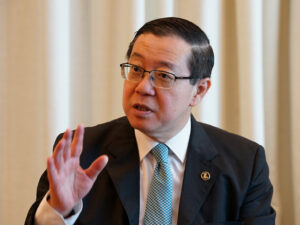
- Malaysia’s ASEAN chairmanship, though still in its early stages, has already demonstrated proactive leadership and strategic vision, countering premature criticisms and laying a strong foundation for regional cooperation and sustainable growth.
- Bridget Welsh’s recent article in The Jakarta Post portal contends that Malaysia’s ASEAN chairmanship has begun on a disappointing note. However, such a conclusion at this early stage may be premature and overlooks critical steps Malaysia has already taken to shape ASEAN’s direction in 2025.
- Malaysia officially assumed the ASEAN chairmanship on January 1, 2025. Given that just over a month has passed, it is too soon to definitively assess Malaysia’s performance. Chairing ASEAN is a year-long endeavour, and initial activities often serve as foundational steps for more substantive initiatives in the coming months.
- Malaysia has already demonstrated proactive leadership by hosting the ASEAN Foreign Ministers’ Retreat in Langkawi on January 19, 2025. This meeting provided a crucial platform for open dialogue on pressing regional issues, including the Myanmar crisis, South China Sea disputes, and transnational crimes such as cyber fraud and human trafficking. Such early engagements highlight Malaysia’s commitment to addressing complex challenges through diplomacy and collaboration.
- To strengthen its leadership, Prime Minister Anwar Ibrahim appointed former Thai Prime Minister Thaksin Shinawatra as an informal adviser for Malaysia’s ASEAN chairmanship. Given Thaksin’s extensive experience in regional politics and economic diplomacy, this strategic appointment is expected to provide valuable insights, enhancing Malaysia’s ability to navigate ASEAN’s multifaceted challenges effectively. While his appointment has stirred some debate, his contributions to ASEAN’s economic cooperation and peace initiatives should not be dismissed outright.
- Malaysia has articulated a clear vision for its chairmanship under the theme “Inclusivity and Sustainability.” This theme underscores Malaysia’s dedication to fostering a united and prosperous ASEAN, with a focus on equitable development, environmental stewardship, and digital transformation. Such a forward-looking agenda indicates a strategic approach to regional leadership.
- The international community has also expressed confidence in Malaysia’s leadership. Notably, the United States pledged unwavering support for Malaysia’s ASEAN chairmanship in October 2024, recognising its potential to promote regional peace and stability. Similarly, Japan and the European Union have lauded Malaysia’s commitment to strengthening regional security and trade.
- Contrary to concerns of inaction, Malaysia has taken tangible steps to strengthen regional cooperation and address pressing issues. Malaysia has made significant strides in bolstering economic ties within ASEAN. A landmark agreement with Singapore to establish a special economic zone in Johor is expected to attract global investment, facilitate seamless trade, and create 20,000 skilled jobs within five years. This initiative highlights Malaysia’s commitment to regional economic integration and trade facilitation.
- Malaysia has upheld ASEAN’s decision to exclude Myanmar’s ruling generals from summits, limiting the country’s participation to a non-political level. Additionally, Malaysia has engaged with key stakeholders beyond the junta, including the National Unity Government (NUG) and ethnic armed organisations, recognising the need for a more inclusive dialogue to address Myanmar’s humanitarian crisis and political instability.
- Malaysia has prioritised strengthening cybersecurity frameworks and enhancing regional cooperation on digital threats. By harmonising digital policies, Malaysia aims to position ASEAN as a unified digital economy, ensuring robust economic growth across member states. It has also initiated discussions on Artificial Intelligence (AI) governance and fintech regulations to bolster ASEAN’s competitiveness in the digital age.
- Malaysia has called for a coordinated ASEAN effort to combat human trafficking, online scams, and illicit financial activities, particularly in Myanmar, Cambodia, and Laos. Recognising the growing impact of these crimes on regional security and tourism, Malaysia has pushed for more stringent enforcement mechanisms and cooperation with international law enforcement agencies.
- As part of its sustainability agenda, Malaysia is leading efforts to operationalise the ASEAN Centre for Climate Change and establish an ASEAN Carbon Credit Market, encouraging member states to adopt greener policies. This is crucial as Southeast Asia remains one of the most vulnerable regions to climate change-related disasters.
- While it is essential to critically assess leadership roles, declaring Malaysia’s ASEAN chairmanship disappointing at this juncture overlooks the foundational steps already taken and the comprehensive plans in place for the year. A more balanced evaluation should consider the full term of Malaysia’s tenure and the tangible outcomes of its initiatives. With its strategic focus on economic growth, regional security, sustainability, and digital transformation, Malaysia is well-positioned to make a meaningful impact as ASEAN chair in 2025.
TAN HONG PIN
MP FOR BAKRI



